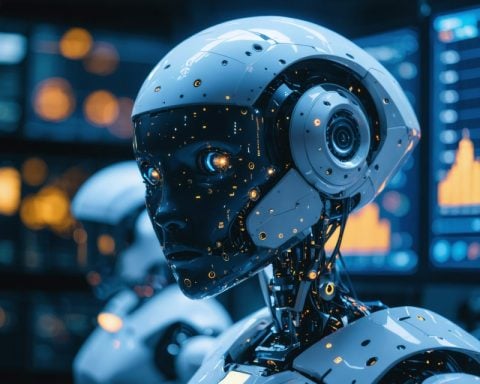Minecraft, the block-building game beloved by millions, is on the verge of another technological revolution. As we look to the future, the concept of “Minecraft Unlock” takes on new dimensions with emerging technologies set to change the gaming landscape.
With advancements in virtual reality (VR) and artificial intelligence (AI), Minecraft is poised to go beyond its current capabilities, creating an even more immersive and intelligent gaming experience. Imagine donning a VR headset and finding yourself physically within the Minecraft world, constructing and exploring your creations in a fully 3D environment. This leap is not as distant as it seems, with companies investing in making VR more accessible and seamless.
AI, on the other hand, promises to introduce smarter villagers and mobs, creating dynamic worlds where in-game characters can learn and adapt based on player interactions. This could lead to a more complex and personalized gaming experience, with AI-driven elements responding uniquely to individual play styles.
Furthermore, the integration of blockchain could redefine how players access and interact with their in-game assets. By tokenizing items and creations, players could genuinely own, trade, or sell their digital possessions, potentially unlocking new economic opportunities within the game.
The roadmap of “Minecraft Unlock” paints a picture of a future where technology enables players to create, interact, and own their in-game universes in unprecedented ways. As developers and technologists continue to push the boundaries, Minecraft could soon transform from a game into an ever-evolving digital ecosystem.
How Emerging Technologies Could Revolutionize the Learning Landscape
The gaming industry is not the only field on the brink of transformation through new technologies—education too stands to benefit tremendously. Imagine the classroom of the future, where concepts like virtual reality (VR) and artificial intelligence (AI) are not merely add-ons but integral parts of the learning environment. These tools promise not only to revolutionize how subjects are taught but also to change the dynamic between teachers and students.
One fascinating potential impact of VR in education is its ability to provide experiential learning. Instead of reading about ancient civilizations, students could virtually visit them, interacting with historically accurate environments and characters. This immersive experience can lead to deeper understanding and retention of information.
AI opens the door to more personalized learning paths. Tutors powered by AI can adapt to a student’s unique pace and learning style, offering a customized educational journey that traditional methods lack. This personalization promotes a more inclusive learning atmosphere for students with diverse needs.
But are these advancements all beneficial? While technology in education offers numerous advantages, there are significant concerns as well. The cost of implementing such technologies can be prohibitive, potentially widening the gap between well-funded and under-resourced schools. Additionally, the reliance on technology poses concerns about data privacy and the potential loss of human interaction in educational settings.
Will the marriage of technology and education redefine how knowledge is imparted and received? How prepared are educational institutions to bridge the infrastructure gap?
For more about the implications of emerging tech in various sectors, explore these resources: VREducation and EdTechXGlobal.

















